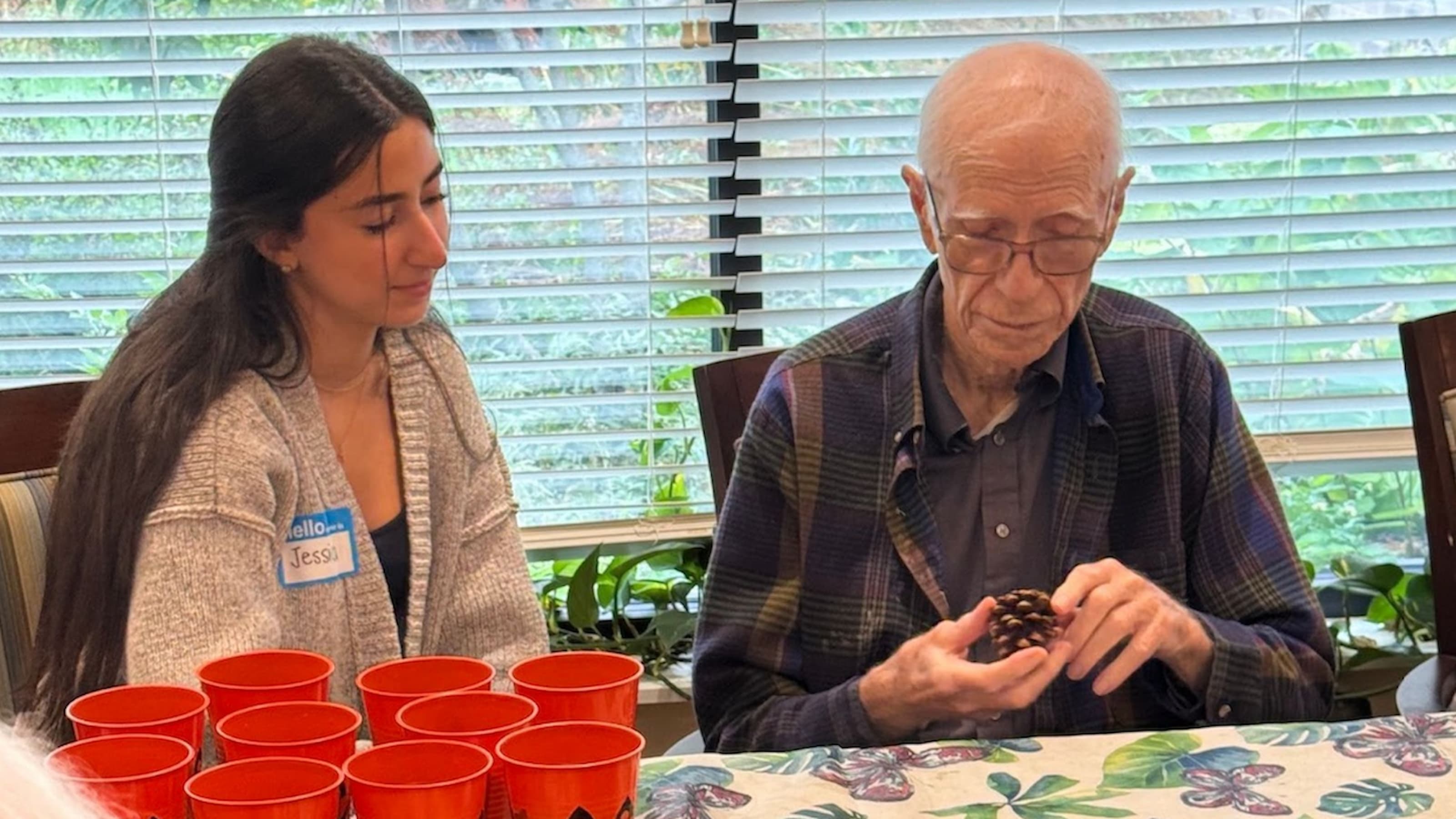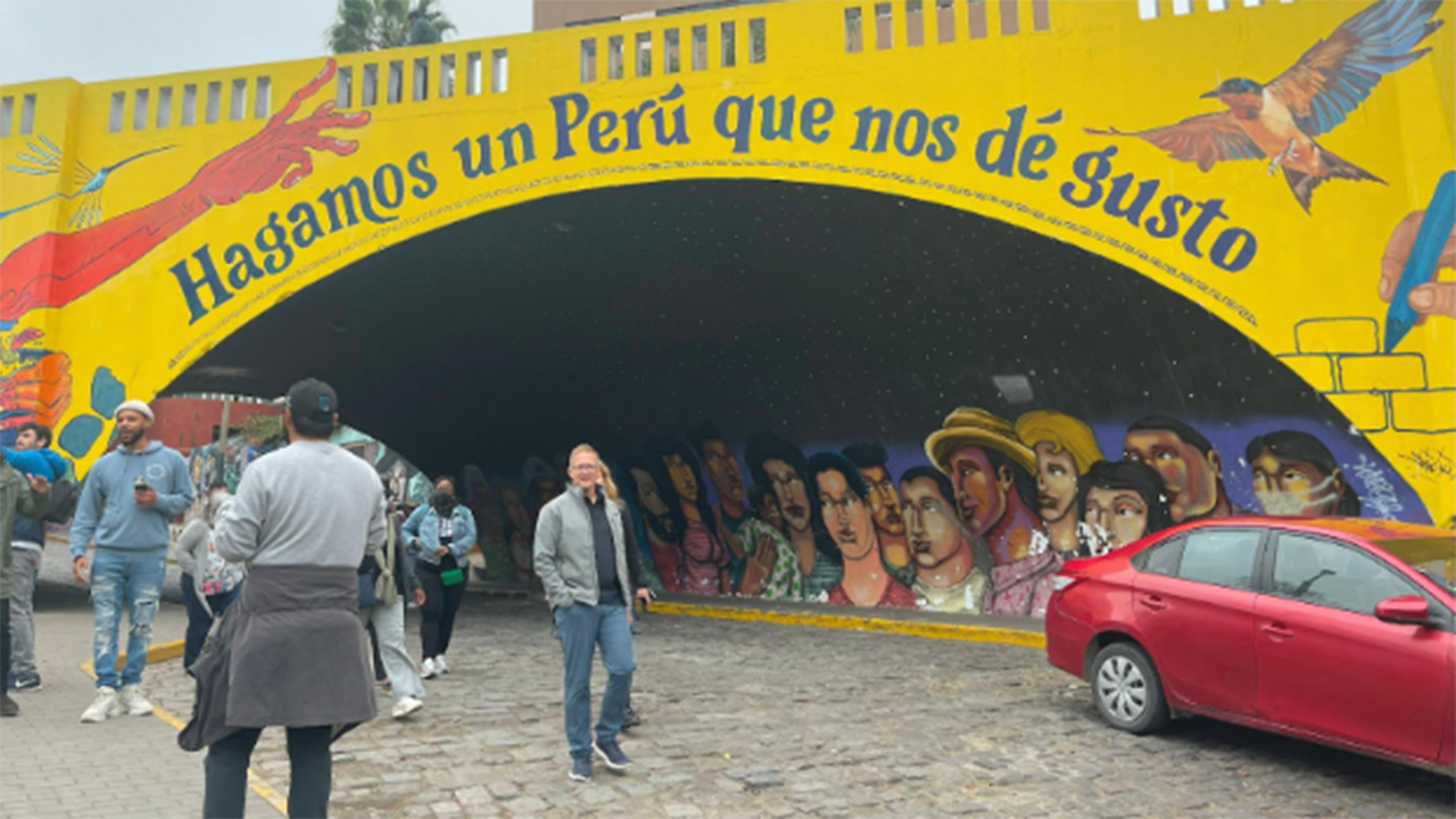Students Experience Life as Foreign Correspondents in South Africa
During a month-long summer immersion course in South Africa, nine Saint Joseph’s University students researched, interviewed and wrote stories for publication in The Hawk, the University’s independent student-run newspaper.
 As part of their summer immersion course, nine students traveled to Rosendal, Free State.
As part of their summer immersion course, nine students traveled to Rosendal, Free State.
Four journalism stories in four weeks.
That was the assignment for Taryn Bellamy ’24 and Allie Miller ’24. These intrepid students were among seven others who traveled to South Africa for a month-long immersion course in media and cultural studies.
Before they could put pen to paper, however, Miller and Bellamy’s own stories of adventure began to unfold, complete with canceled flights, lost luggage and rolling electricity outages at their lodging in Johannesburg.
“Our trip was full of unforeseen chaos,” says Miller, an English and Spanish double major. Yet, they persevered and successfully published their stories in The Hawk student newspaper.
Delving into the history of South Africa prepared them for their journey, along with weekly reflections and one-on-one guidance from two well-traveled faculty mentors: Jenny Spinner, PhD, professor and director of the Writing Center, and Shenid Bhayroo, PhD, assistant professor of English, writing and journalism.
Inserting students into a new culture, the course gave these nine Hawks the opportunity to research, report and produce multimedia news stories focused on social justice issues in post-apartheid South Africa.
One core objective of the course was to allow students to organically develop a critical consciousness about their understanding of the world beyond the United States.
“Our student-journalists engage with people from a perspective of respect, discernment and the desire to learn and understand,” says Bhayroo, creator of the South Africa study abroad program. They learn “to tell stories that are meaningful and told through rigorous research and writing.”
Bhayroo himself worked as a journalist for many years. “I had the great privilege of being part of the news team that covered the Truth and Reconciliation Commission that happened during Mandela's presidency,” he says.
Bhayroo later worked as an investigative reporter and a freelance news photographer for the CNN bureau in Johannesburg before coming to Saint Joseph’s. He hopes to impart his wisdom and years of experience on future generations.
My interest is how journalism works, from the perspective of journalists and news organizations, and I look at the factors that contribute to the storytelling process.”
Shenid Bhayroo, PhD
Assistant Professor of English, Writing and JournalismA student-journalist asks uncomfortable questions.

Bellamy’s favorite story that she reported centers on peace education within a high school curriculum. The childhood studies major focused on an innovative program at Avoca Secondary School in Durban in the KwaZulu Natal province that empowers students to find peace within themselves so their communities can in turn be more peaceful.
Bellamy spoke with a vice principal at the school who advocated for dialogue as an avenue to reconciliation. She remarks, “He's talking about apartheid, and he's talking about racism in schools and violence and anger.”
She continues, “I was working with students who were so comfortable talking about the uncomfortable things. I was like, this is who I want to be in the room.”
I want to write about things that will make people uncomfortable because those are the things that I'm most passionate about.”
Taryn Bellamy ’24
Childhood studies major with minors in creative writing and healthcare ethicsUpon returning from South Africa, Bellamy continued to explore race and representation as a Summer Scholar. Her research involved developing resources for middle- and high-school counselors and social workers through literature that targets Black and brown youth. “This is the age when youth begin to recognize their color," she states, “and the effect on their everyday lives.”
Another student-journalist celebrates pride.

Publishing a story about marching in her first pride parade – in Durban’s Gugu Dlamini Park – was for Miller, “one of the best experiences of my life.”
“This story changed my life,” she says. “I was given this opportunity and this platform to tell other people's stories. I feel so honored to do that while also being able to come to a new sense of pride in myself, halfway around the world.”
Miller marched. She took notes. And she documented a personal story of pride that resonates around the globe. “I was reminded of why we have pride and why it's important,” she says.
Members of the LGBTQ+ community in South Africa face high rates of violence and hate crimes, even though sexual orientation and gender identity are protected in the Constitution. The return of the pride parade after a two-year absence due to the COVID-19 pandemic provided a safe place for expression and celebration.
I fell in love with journalism on this trip because I learned how to tell people's stories through what I love doing the most, which is writing.”
Allie Miller '24
English and Spanish double majorBefore this course, Miller had never considered a career in journalism. “I completely wrote it off. And then I started doing it. Can I see myself being a journalist now? Absolutely.”
As a Summer Scholar, Miller continued to contribute stories to The Hawk, covering LGBTQ+ organizations and events in her hometown of Pittsburgh.



